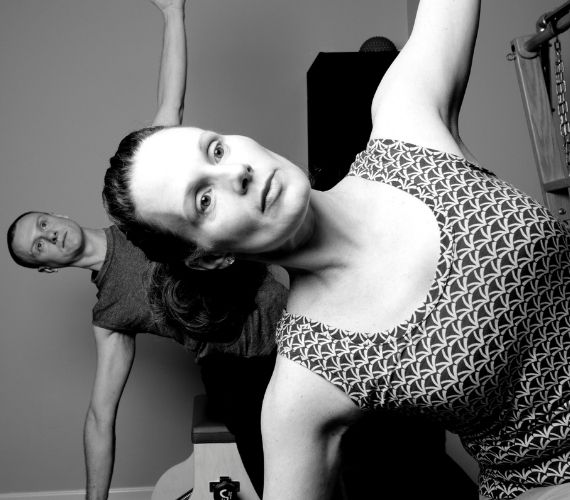
Often quoted by teachers, peppered on studio walls and Instagram pages – Joseph Pilates said it himself, “the Pilates method of body conditioning is complete coordination of body, mind and spirit”. The physical gains we make in the studio are so abundant and obvious, that it’s only natural that we highlight the physicality of Pilates and its impact on our bodies. As an industry, how can we better focus on the mind and spirit aspect of this quote, so that we can give our clients the full benefit possible from a rounded Pilates practice? If we know that “physical fitness is the first requisite of happiness”, then how can we as teachers guide our clients through a Pilates practice that benefits not only their physical health, but their mental and emotional health as well?
October is Mental Health Awareness Month, why not rethink the meaning behind some of our guiding principles and use them as tools for enhancing our mental and emotional wellbeing through Pilates? After all, it is only with peak mental health in combination with physical fitness that we can live our lives with spontaneous zest and pleasure!
Breathing
The act of breathing, so natural that it seems ludicrous to need instruction on how to do it properly. However, as instructors we can easily recognise faulty breathing patterns in our clients and it’s safe to say that many come into their Pilates practice without a conscious understanding of their breath and how it can impact the effectiveness of their exercise.
The physiological responses to deep breathing are well studied, with lowered blood pressure, increased heart rate variability and improved cardio respiratory fitness among the benefits. More recently, in addition to these physical improvements to the body, deep breathing has been shown to be a valuable tool in enhancing mental and emotional wellness.
A recent study shows “breathing practice to be an effective non-pharmacological intervention for emotion enhancement, including a reduction in anxiety, depression and stress”. More specifically, this study showed a significant reduction in cortisol levels in a group practicing diaphragmatic breathing interventions (in 20 sessions, over 8 weeks) compared to a control group who did not receive any interventions. We know that cortisol is the body’s primary stress hormone and that overexposure to it can significantly disrupt the healthy function of many of the body’s processes, so it’s in our best interest to keep our cortisol levels as low as possible.
In an overly medicated society, in which it is estimated that almost 1 in 2 Australians will experience a mental health condition at some point in their lifetime, it seems only logical to embed a deep breathing practice into everyday life. Whilst we may not reach every Australian through Pilates, we do have a fantastic opportunity to improve the mental state of our own clients by garnering a true understanding of the breath’s impact on every system in the body and guiding our clients towards utilising that practice not just in a session with us, but at many points throughout their day.
Concentration
Is there anything lovelier to watch than a child at play, focused only on the present moment, the task at hand of building the biggest tower or the longest train track? To see this is to witness a type of mindfulness, a calm and pure state that is almost drummed out of us as we are pushed into adulthood. I’ve found that state again though, and it’s on my mat. The concentration and attention needed to perfect a roll up, to achieve a control balance, to master a boomerang – it’s almost meditative, and that type of mindful movement and balance of forces needed when using equipment and props has even more positive impact on the body/brain connection.
Recent neuroscience research, particularly the work of Harvard-based neuroscientist Sara Lazar, have found that this type of meditation and mindfulness may physically change numerous parts of the brain which could theoretically impact cognitive faculties that include learning and memory processes, emotion regulation…and perspective taking. Couple that with the sense of fulfilment derived from achieving self mastery in a specific skill – be it a language, cooking or in our case, Pilates, and the mental and emotional benefits of a regular practice start to add up.
Flow
Joseph Pilates spoke about fluidity, elegance and grace, not just during Pilates but in daily life – an ease and smoothness of movement that can easily be translated from the physical to the mental and emotional. In Pilates we refer to this as flow. In psychological terms, flow is often described as the “mental state of a person when they are completely immersed in one activity – a single mindedness that harnesses all emotions into one, to produce a kind of rapture”.
To accomplish this state of flow, an individual usually needs to be faced with a task that has clear goals, that require specific responses. It helps if there is an element of challenge so that new skills can be developed.
With this understanding, it’s easy to see how flow, paired with concentration can lead to a mental state of pure enjoyment and accomplishment. Ultimately, flow in these terms leads to happiness – a true antidote to depression and anxiety.
Breathing, concentration and flow – three foundational Pilates principles that guide us as teachers to promote the physical health of our clients, that can also be reframed to improve the mental and emotional wellbeing of all of those we interact with in the studio.
Pamela Lam, PAA Member
Mental Health support websites:
Mental Health Foundation Australia
Event lists by State :
Victoria https://www.onlymelbourne.com.au/mental-health-week#.X35y8u1xW70
Queensland https://www.qldmentalhealthweek.org.au
South Australia https://www.mhcsa.org.au/mentalhealthweek/
Western Australia https://mentalhealthweek.org.au/
New South Wales http://mentalhealthmonth.wayahead.org.au/
Tasmania https://mhct.org/mentalhealthweek/
Northern Territory https://ntmhc.org.au/mental-health-week/

Comments are closed.